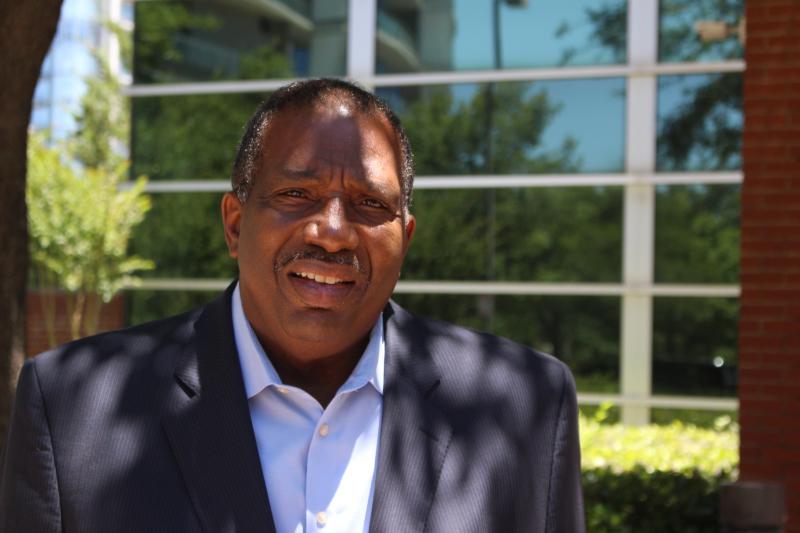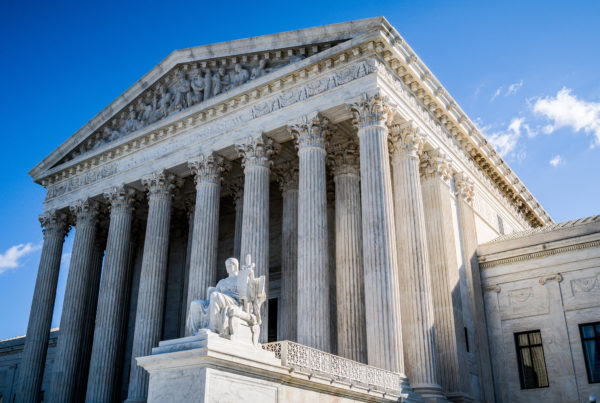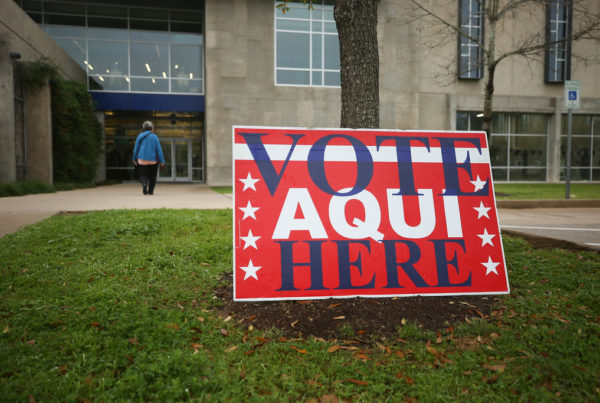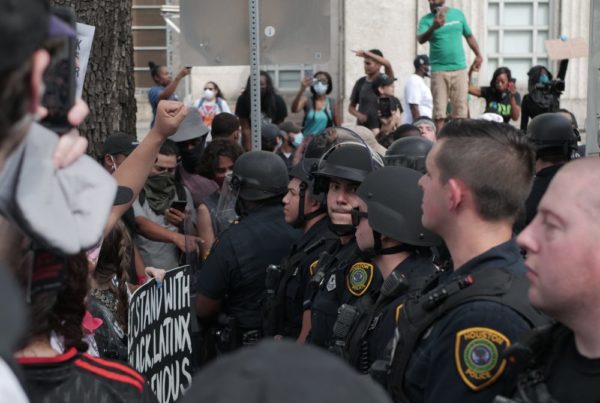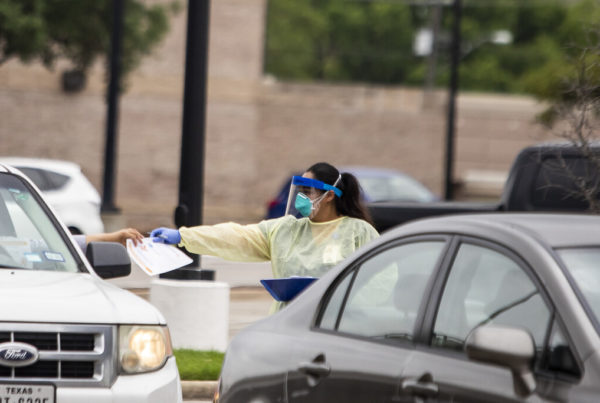As Texans head to the polls for the July 14th election, Texas Standard is taking a look at some of the most contentious races on the ballot. A profile of West’s opponent, MJ Hegar, is here.
From KERA:
Years ago, when his kids were young, Texas Sen. Royce West remembers getting stopped by a cop.
“I was taking my son to get a baseball glove, or something like that, and my sons were in the car with me,” he recalled. “And so the police officer came up and said I had rolled through the stop sign. And of course I said, ‘I didn’t do that.’”
He kept his cool. When the officer went to check his computer, West turned to the boys.
“I said, ‘This is a good lesson for you, you know. You can’t win it out on the street. Don’t even try, because that officer has the power of life and death. I’d rather for you to come home, and then we can win it in the court, as opposed to on the streets.’
Court is a venue West is intimately familiar with. His career as a lawyer includes a stint as a county prosecutor and work as a defense attorney. He’s owned his own law practice for years.
West has also logged decades in another hall of power: the Texas Legislature.
And with views on police violence changing, 2020 just may be Royce West’s moment. His record on the issue could help him win supporters in the Democratic primary runoff on July 14.
Racial profiling and dash cams
As a state senator representing the Southern part of Dallas County since 1993, West has focused on education and won funding for families who take in their relatives as foster children.
He has also worked on police reform and criminal justice issues, like a notable 2001 Texas law banning racial profiling in policing and putting dashboard cameras in cop cars.
“We did the hard work,” West said in an interview. “We stayed long hours to make certain we were able to hash out compromises as it related to the language of the bill.”
State Sen. John Whitmire of Houston, the longest-serving member of the chamber, said “it was a huge fuss” when West negotiated the law, because police officers didn’t want dashboard cameras.
“He had these skills to explain that it was going to be beneficial for all policemen,” Whitmire said. “Particularly the good police officers. It would give them a narrative of what they did and why they did it. And not to mention, it would expose bad police officers.”
As a Democrat in the Legislature, West has had to rely on his powers of persuasion. His party has been in the minority in the state Senate since the mid-1990s.
Dallas County’s chief prosecutor John Creuzot, himself a prominent voice for criminal justice reform, has known West for over 40 years. He also praised West’s ability to reason with people he disagrees with in order to arrive at a compromise on policy.
“I’ve seen him with some pretty hard-core, right wing folks … and he maintains a cordial relationship. He’ll kind of poke ’em in the ribs about their positions, but laughingly so. They’ll poke him back about his positions,” Creuzot said. “They get along.”
Body cams
Many years after the dash cam bill, the state passed a law on body-worn cameras. West authored that one, too, and called it a success.
But critics say the law doesn’t do enough to increase police accountability, and that it more often protects police. That’s because the law made it way too hard for the public to access the tapes, according to criminal justice reform advocate Scott Henson.
“His body cam bill made the body cams much more closed than the dashcam footage had been,” Henson said.
The law requires a person asking for the footage to provide several specific details, including the date of the recording, approximate time, specific location, and name of at least one person in the recording.
Henson, who runs the Texas nonprofit Just Liberty and founded the criminal justice blog Grits for Breakfast, thinks West has done some good things on policing, too, like the earlier racial profiling law.
He calls the senator’s record on criminal justice reform “a mixed bag.”
Exculpatory evidence bill
A recent defeat for West on police reform was a bill requiring law enforcement agencies to turn over all evidence to prosecutors that could potentially prove a person’s innocence.
West authored the bill and got it through the state Senate in the 2019 session, but it failed in the House.
“I thought I had an agreement with the other side,” West said. “But once it got over to the House, it ended up turning into something else.”
Creuzot, a supporter of the bill, said there was probably not much West could have done about it.
“If some powerful person down the line says ‘I don’t want this to come out,’ then you can have all the good back-slapping and everything else about it, it won’t come out,” he said. “So that’s how it works.”
Federal policy
So what does West want to accomplish in Washington, D.C., if he beats fellow Democrat M.J. Hegar in the primary runoff and then Republican John Cornyn in November?
For one thing, he said he wants a national standard for when officers can use deadly force, and to condition criminal justice funding on it.
“There should be one law governing the use of force in this country,” he said.
West doesn’t want to defund police departments, but thinks cities should look at their budgets and possibly reallocate money to other services, like mental health.
He also wants a police officer’s punishment for killing a person to be enhanced by hate crimes laws, if hate is found to be a motivating factor.
The runoff election is July 14. Early voting runs June 29 to July 10, but will not be open on July 3 or 4.
Past not necessarily prologue
Despite any complaints he may have about the body camera law, Henson considers West to be a pragmatist, and thinks the killing of George Floyd has dramatically shifted what’s possible.
“The Earth has moved under our feet, and that’s as true for him as it is everybody else,” Henson said. “I expect that he will see more opportunities going forward because of that, and I hope he takes them.”
Henson called a national standard for the use of deadly force a good idea, “especially if they’re good standards.”
West also thinks the terms of the debate have fundamentally changed, and that the protests have brought on a moment that calls for more than study and small tweaks.
“I don’t want to sell us short,” West said. “I want to see restructuring in this society, where people in poverty, most of which are people of color, get a better shake. And we don’t keep on talking about it over and over and over again.”
In 2021 Royce West will either be Texas’ junior U.S. senator in an era of peak polarization, or back in the Texas Senate debating police reform at a pivotal moment.
Either way, he’ll need full use of his powers of persuasion.


